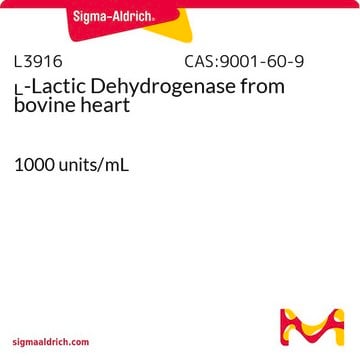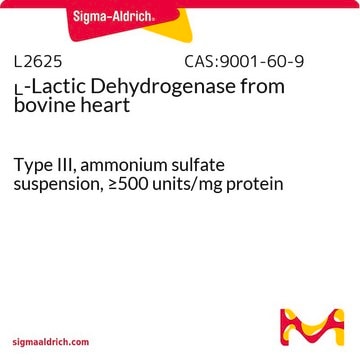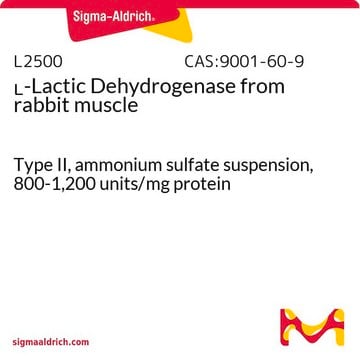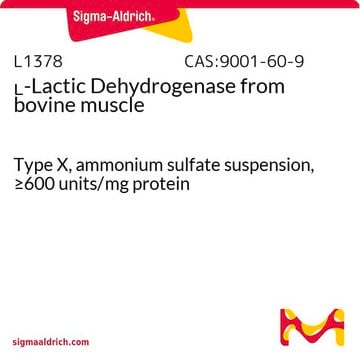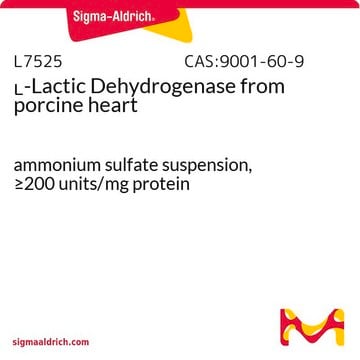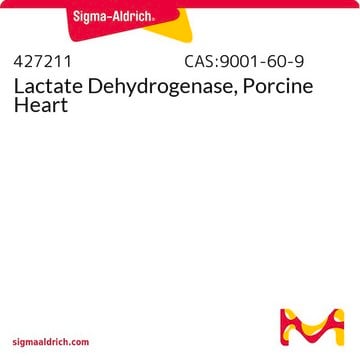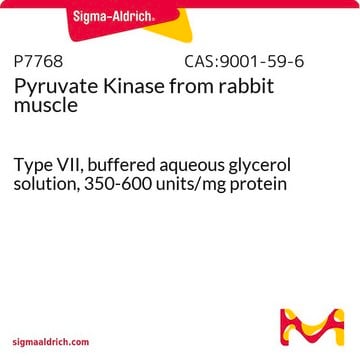L1006
L-Lactic Dehydrogenase from bovine heart
Type XVII, buffered aqueous glycerol solution, ≥400 units/mg protein
Synonym(s):
Lactate, (S)-Lactate: NAD+ oxidoreductase, L-LDH, LAD, LD
About This Item
Recommended Products
biological source
bovine heart
type
Type XVII
Assay
5.0—15.0 mg protein/mL (biuret)
form
buffered aqueous glycerol solution
specific activity
≥400 units/mg protein
mol wt
140 kDa
manufacturer/tradename
Sigma-Aldrich
technique(s)
cell based assay: suitable
impurities
<10 μg/mg protein free ammonium
color
white
pH
7.5
cation traces
NH4+: ≤10 μg/mg protein
application(s)
life science and biopharma
foreign activity
glutamic-pyruvic transaminase and glutamic-oxalacetic transaminase ≤0.02%
pyruvate kinase, myokinase and α-glycerophosphate dehydrogenase ≤0.01%
storage temp.
2-8°C
Gene Information
cow ... LDHA(281274) , LDHB(281275)
Looking for similar products? Visit Product Comparison Guide
General description
Application
Biochem/physiol Actions
Unit Definition
Physical form
Analysis Note
Signal Word
Danger
Hazard Statements
Precautionary Statements
Hazard Classifications
Resp. Sens. 1
Storage Class Code
11 - Combustible Solids
WGK
WGK 1
Certificates of Analysis (COA)
Search for Certificates of Analysis (COA) by entering the products Lot/Batch Number. Lot and Batch Numbers can be found on a product’s label following the words ‘Lot’ or ‘Batch’.
Already Own This Product?
Find documentation for the products that you have recently purchased in the Document Library.
Customers Also Viewed
Our team of scientists has experience in all areas of research including Life Science, Material Science, Chemical Synthesis, Chromatography, Analytical and many others.
Contact Technical Service